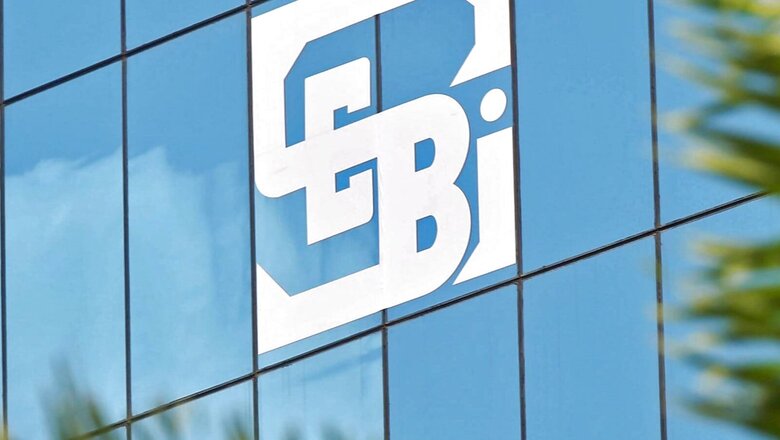
views
The Securities and Exchange Board of India (SEBI) has come out with consultation papers around Alternative Investment Funds (AIFs).
The first paper deals with direct plan for schemes of AIFs and trail model for distribution commission in AIFs.
The second consultation paper revolves around providing options to AIFs and their investors to carry forward unliquidated investments of a scheme upon completion of its tenure.
The objective of the consultation papers is to seek comments/ inputs/ suggestions from all stakeholders on proposals.
What is an Alternate Investment Fund (AIF)?
Alternative Investment Fund or AIF means any fund established or incorporated in India which is a privately pooled investment vehicle which collects funds from sophisticated investors, whether Indian or foreign, for investing it in accordance with a defined investment policy for the benefit of its investors.
Background
Currently AIFs offer a ‘direct plan’ for investors in their Private Placement Memorandum (PPM) at their option. Such a direct plan would not entail any distribution or placement fees for the investor.
Further, AIF Regulations do not place any restrictions on how much of any distribution commission or placement fee can be paid on an upfront basis to intermediaries. It may be noted that, to reduce mis-selling, SEBI (Mutual Funds) Regulations, 1996 and SEBI (Portfolio Managers) Regulations, 2020, mandate that Asset Management Companies and Portfolio Managers should adopt a full trail model of commission to their distributors.
SEBI Proposals
SEBI has proposed mandating direct plans for AIF. AIF Regulations permit AIFs to raise funds from investors only on a private placement basis. An investor may also invest in an AIF through a SEBI registered Investment Adviser or Portfolio Manager.
Investors who look to invest in an AIF through an Investment Advisor Portfolio Manager, are prone to be charged twice, once in the form of Investment Adviser’ advisory fee or Portfolio Manager’s portfolio management fee, and separately via the AIF distribution fee. To address this issue of potential double charge to the investors, a proposal to mandate AIFs to offer the option of direct plan to investors was placed before the Alternative Investment Policy Advisory Committee (AIPAC).
It is proposed that AIFs be mandated to offer the option of a Direct Plan for investors, entailing no distribution/ placement fee. AIFs ensure that any investor approaching an AIF through an intermediary, that is separately charging the investor a fee (such as advisory or portfolio management fee), invests in the AIF via the direct plan route only.
Also, investors on-boarded via the direct plan to be provided for an adjusted higher number of units, taking into account the lower distribution charges applicable to them versus other investors, such that all investors would continue to see the same Net Asset value (NAV) on their unit holdings.
Trail model for distribution commission in AIFs
Background
While Mutual Fund Regulations and Portfolio Managers Regulations mandate trail commissions to distributors (rather than upfront commission) to reduce mis-selling, there are no regulatory guidelines in place with respect to commission/distribution fees in case of AIFs.
Of late, industry feedback suggests that at least in some cases, the quantum of upfront commissions for AIF distribution has gone up to around 4%-5% of committed amount. The consultation paper said that such high upfront commissions, particularly in sharp contrast to the trail commissions for other products, increase the chances of mis-selling of AIF schemes.
To address the issue of probable mis-selling of AIFs, and to ensure parity across other SEBI products and offerings, a proposal on adopting a trial model of distribution commission in AIFs was placed before AIPAC.
SEBI stated that AIPAC deliberated on the proposal and recommended that in case of Category III AIFs, which are somewhat more directly comparable with Mutual Funds/Portfolio Manager Services, investors may be charged placement fee/ distribution fee on a trial basis.
In case of Category I AIFs and Category II AIFs, investors may also be charged on a trail basis, however, a certain higher amount of distribution fee (viz: one-third of the present value of the total distribution fee) may be paid upfront in the first year. This is to acknowledge the need for some reasonable incentives to ensure the flow of savings into private capital markets.
A move towards a trial model of commission will ensure that the distribution of AIFs is in alignment with the interest of investors, and reduce the scope of mis-selling of AIFs. Further, this shall also bring AIFs in parity with the regulatory framework for Portfolio Managers and Mutual Funds by removing existing commission arbitrage among these products.
Also, in another consultation paper, SEBI sought suggestions on a proposal to provide an option to AIFs and their investors to carry forward unliquidated investments of a scheme upon expiry of its tenure, while ensuring proper recognition of asset value and fund performance.
In terms of Regulation 13(5) of AIF Regulations, AIFs can extend the tenure of a scheme up to two years, subject to approval of two-thirds of the investors by value of their investment in the AIF. Further, in terms of Regulation 29(8) of AIF Regulations, AIFs/Managers have the option to distribute the assets of the AIF in-specie, after obtaining approval of at least 75% of the investors by value of their investment in the AIF.
At the end of tenure of a scheme beyond two years and at the end of extended tenure of LVFs, the AIF/manager may close the existing scheme and transfer the unliquidated investments to a new scheme, subject to obtaining consent of 75% of investors by value.
In case the consent is not received either for in-specie distribution or for transfer to a new scheme per the terms proposed by SEBI, the AIF/manager has to mandatorily liquidate the investments at liquidation value within a year of expiry.
Read all the Latest Business News here



















Comments
0 comment